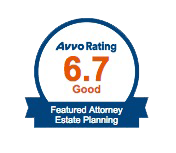
Do you know what a QCD is? It’s a Qualified Charitable Distribution.
It is taking your Required Minimum Distribution from your IRA if you’re over 70 1/2 and having the money sent directly to a charity or charities of your choice.
When you do that, you don’t get taxed on that money coming out because it’s a charitable distribution. It does not increase your adjusted gross income like a regular IRA distribution would.
You have to be 70 1/2 and the money has to go directly from your IRA to the charity, so the custodian of your account has to send it via the instructions you make to the custodian on its form.
It’s a little complicated. You can’t go above your RMD for it. You need to use it for your RMD. The limit is $100,000 per person per year and it’s not per IRA. So, if you have multiple IRAs you could do some from different IRAs. Finally, it can only come from an IRA or an inherited IRA, not a 401K or a 403B.
Again, QCD, Qualified Charitable Distribution may come in handy this year now that there are higher amounts of standard deductions on taxes and it’s a little bit harder to itemize or less likely that people would itemize. If you make a QCD it will reduce your taxes even if you don’t itemize because it never counts as income in the first place.
Mike Garry, Yardley Wealth Management. We are a fiduciary, fee-only financial planning, and wealth management firm in Newtown, Pennsylvania. That’s in Bucks County. If you’d like to talk about this or anything else, please reach out: 267-573-1019, [email protected] or @michaeljgarry


